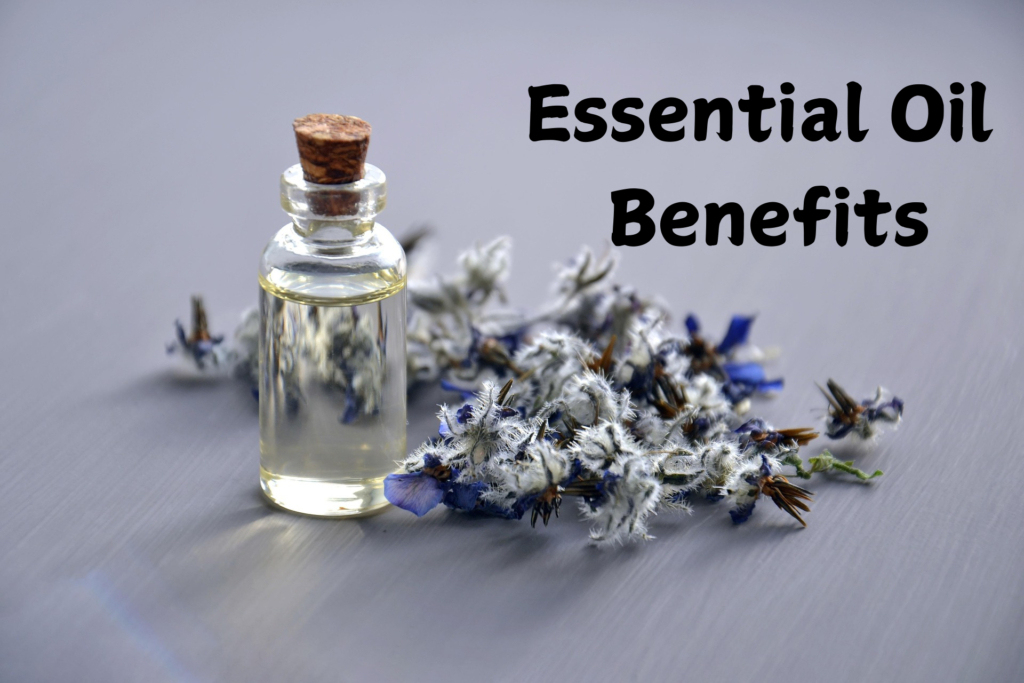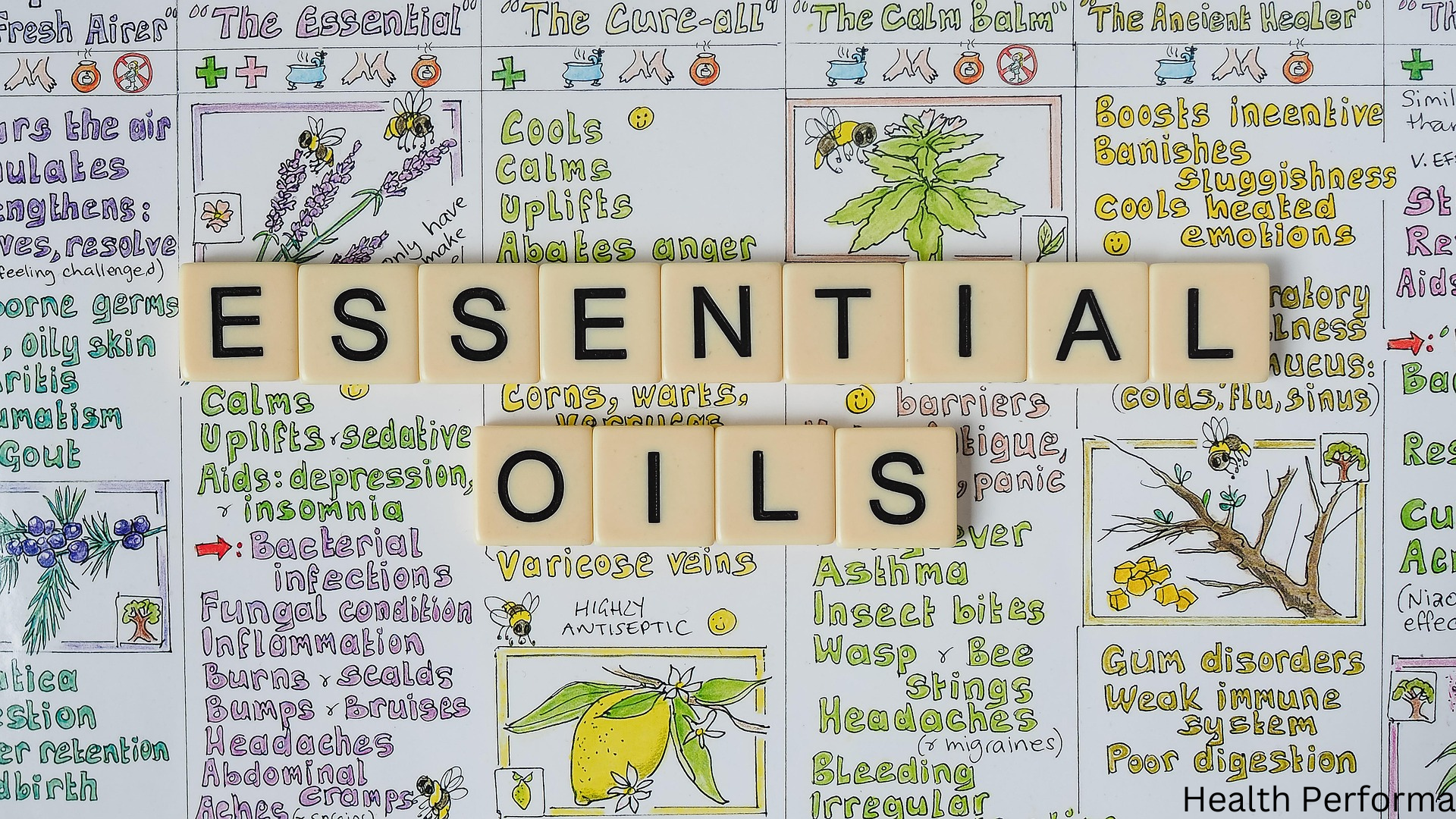Unlocking the Power of Nature for Health and Wellness
In recent years, essential oils have gained immense popularity as a natural and holistic approach to health and well-being. Derived from plants, these concentrated extracts have been used for centuries in traditional medicine, aromatherapy, and skincare. The essential oils benefits are vast, ranging from stress relief and improved sleep to pain management and immune support. In this comprehensive guide, we’ll explore the science behind essential oils, their numerous benefits, and how you can incorporate them into your daily life.
Table of Contents
What Are Essential Oils?
Essential oils are highly concentrated plant extracts obtained through steam distillation, cold pressing, or solvent extraction. They capture the plant’s scent, flavor, and therapeutic properties, making them a powerful tool for natural healing. Each oil has a unique chemical composition, which determines its aroma and benefits. Some of the most popular essential oils include lavender, peppermint, tea tree, eucalyptus, and lemon.
The Science Behind Essential Oils
The benefits of essential oils are backed by both traditional use and modern science. When inhaled or applied topically, the aromatic compounds in essential oils interact with the body’s limbic system, which controls emotions, memory, and hormonal balance. This interaction can trigger physiological responses, such as relaxation, improved mood, or pain relief. Additionally, many essential oils possess antimicrobial, anti-inflammatory, and antioxidant properties, making them effective for a variety of health concerns.
Top 10 Essential Oils and Their Benefits
Essential oils have been used for centuries for their therapeutic properties. Derived from plants, these oils can provide a wide range of physical and emotional health benefits. Here’s a look at the top 10 essential oils and their benefits:
1. Lavender Oil
Benefits:
- Promotes Relaxation and Sleep: Lavender oil is well-known for its calming and soothing properties. It can help reduce stress and anxiety, and is often used to improve sleep quality.
- Relieves Headaches: The anti-inflammatory properties of lavender oil can help ease tension headaches and migraines.
- Skin Healing: Lavender oil is frequently used for its ability to heal minor cuts, burns, and skin irritations.
How to Use:
- Add a few drops to a diffuser for relaxation.
- Mix with a carrier oil and apply to temples for headache relief.
2. Peppermint Oil
Benefits:
- Relieves Muscle Pain: Peppermint oil has a cooling effect, which can alleviate muscle soreness and tension.
- Boosts Energy: Known for its invigorating properties, peppermint oil can help increase energy levels and improve focus.
- Improves Digestion: Peppermint oil is effective in soothing digestive discomfort, reducing bloating, and relieving symptoms of irritable bowel syndrome (IBS).
How to Use:
- Dilute and massage into sore muscles.
- Inhale directly from the bottle for a quick energy boost.
- Add a drop to a cup of tea to help with digestion.
3. Tea Tree Oil (Melaleuca)
Benefits:
- Antimicrobial and Antiseptic: Tea tree oil is widely recognized for its ability to fight bacteria, viruses, and fungi, making it effective for treating skin infections and wounds.
- Acne Treatment: Its anti-inflammatory and antimicrobial properties make tea tree oil ideal for acne-prone skin.
- Natural Deodorant: Due to its bacteria-fighting abilities, tea tree oil is often used in natural deodorants.
How to Use:
- Apply diluted tea tree oil to acne or minor skin irritations.
- Add to household cleaning products to disinfect surfaces.
4. Eucalyptus Oil
Benefits:
- Relieves Respiratory Issues: Eucalyptus oil can help relieve coughs, clear congested airways, and reduce sinus inflammation.
- Anti-inflammatory Properties: It’s effective in reducing muscle and joint pain caused by inflammation.
- Immune Boosting: Eucalyptus oil has antimicrobial properties, making it helpful for boosting immune function and fighting infections.
How to Use:
- Add to a steam inhalation or diffuser to clear nasal passages.
- Dilute and apply to sore muscles or joints.
5. Frankincense Oil
Benefits:
- Reduces Stress and Anxiety: Frankincense oil has a calming effect on the mind, helping to relieve stress and anxiety.
- Supports Immune Function: It has powerful antiseptic and disinfectant properties, boosting immune health.
- Skin Health: Frankincense oil can reduce the appearance of scars, wrinkles, and stretch marks.
How to Use:
- Diffuse or inhale directly to reduce stress.
- Mix with a carrier oil and apply to the skin to promote healing.
6. Lemon Oil
Benefits:
- Detoxifies and Cleanses: Lemon oil is known for its detoxifying properties and can help cleanse the body when taken in moderation (in food-grade forms).
- Improves Mood: The fresh, uplifting scent of lemon oil can help reduce feelings of depression and anxiety.
- Skin Brightening: Lemon oil can lighten dark spots and improve skin clarity.
How to Use:
- Add a drop to water for a refreshing detox drink (only food-grade essential oil).
- Use in a diffuser to boost mood and energy.
7. Rosemary Oil
Benefits:
- Enhances Memory and Focus: Rosemary oil is widely known for improving cognitive function, memory, and focus.
- Stimulates Hair Growth: It helps increase circulation to the scalp, promoting hair growth and preventing dandruff.
- Pain Relief: Rosemary oil has analgesic properties, making it useful for alleviating headaches and muscle pain.
How to Use:
- Diffuse or inhale before studying or working to boost focus.
- Dilute with a carrier oil and massage into the scalp for hair growth.
8. Chamomile Oil
Benefits:
- Promotes Relaxation and Sleep: Chamomile oil has calming properties that help with anxiety and insomnia.
- Soothes Skin Conditions: Its anti-inflammatory and soothing properties are ideal for sensitive skin or conditions like eczema and dermatitis.
- Relieves Digestive Discomfort: Chamomile oil can help with indigestion, bloating, and cramps.
How to Use:
- Add to a diffuser or bath for relaxation and stress relief.
- Apply topically (diluted) to irritated skin.
9. Ylang Ylang Oil
Benefits:
- Reduces Anxiety and Boosts Mood: Ylang Ylang oil is known for its uplifting scent, helping to reduce anxiety and improve mood.
- Supports Heart Health: It may help lower blood pressure and improve circulation.
- Skin and Hair Care: Ylang Ylang oil can help balance oil production in the skin and scalp, making it useful for both dry and oily skin types.
How to Use:
- Diffuse to promote a sense of calm and relaxation.
- Apply diluted oil to the scalp to balance oil production.
10. Clary Sage Oil
Benefits:
- Hormonal Balance: Clary sage oil is known for its ability to balance hormones, making it particularly useful for relieving symptoms of PMS and menopause.
- Relieves Stress and Anxiety: It has calming properties that can help reduce stress and promote emotional well-being.
- Supports Skin Health: Clary sage oil can help reduce inflammation and improve skin conditions like acne.
How to Use:
- Diffuse or inhale for stress relief.
- Massage into the abdomen (diluted) to ease menstrual cramps.

How to Use Essential Oils Safely
Essential oils offer numerous health and wellness benefits, but they should be used with caution to avoid adverse reactions. Here are some key guidelines on how to use essential oils safely:
1. Dilute Essential Oils
Most essential oils are highly concentrated and can cause skin irritation if applied directly. To avoid this, always dilute essential oils with a carrier oil (such as coconut, jojoba, or almond oil) before applying them to the skin.
- Recommended Dilution Ratios:
- For adults: 2-3 drops of essential oil per teaspoon of carrier oil.
- For children: 1 drop of essential oil per teaspoon of carrier oil.
2. Perform a Patch Test
Before using an essential oil on a large area of your body, perform a patch test to check for potential allergic reactions.
- How to do it:
- Dilute the essential oil and apply a small amount to a patch of skin (such as the inner forearm).
- Wait 24 hours to see if any irritation, redness, or discomfort occurs.
- If you experience any adverse reaction, do not use the oil on your skin.
3. Avoid Sensitive Areas
Essential oils should never be applied to sensitive areas such as the eyes, ears, nose, or mucous membranes. They can cause irritation, burns, or other serious reactions if they come into contact with these areas.
- Tip: If essential oil accidentally gets into your eyes, flush the area with a carrier oil (not water) and seek medical attention if needed.
4. Use Proper Diffusion Practices
When using essential oils in a diffuser, ensure you follow the recommended dosage to avoid overexposure. Diffusing too much oil can cause respiratory irritation, headaches, or nausea.
- Tips for Safe Diffusion:
- Use only a few drops (3-5) per diffusion session.
- Avoid diffusing oils in small, enclosed spaces without proper ventilation.
- Limit diffusion time to 30–60 minutes at a time, with breaks in between.
5. Know Which Oils to Avoid for Certain Conditions
Some essential oils are not safe for everyone, especially individuals with specific health conditions or sensitivities. Always consult with a healthcare professional before using essential oils if you have underlying conditions.
- Examples of cautionary oils:
- Pregnancy: Oils like clary sage, rosemary, and peppermint should be avoided during pregnancy as they may cause uterine contractions.
- Epilepsy: Avoid oils like rosemary, fennel, and eucalyptus as they may trigger seizures in people with epilepsy.
- High Blood Pressure: Hypertensive individuals should be cautious with oils like rosemary and thyme, as they can raise blood pressure.
6. Use Food-Grade Essential Oils for Ingestion
While some essential oils are safe to ingest in small amounts, not all are intended for internal use. Only use food-grade essential oils that are labeled as safe for ingestion, and always follow dosage recommendations.
- Tip: Consult with a healthcare provider before ingesting essential oils, especially if you have pre-existing health conditions or are taking medications.
7. Store Oils Properly
Essential oils should be stored in dark, glass containers (preferably amber or cobalt blue) to protect them from sunlight and air exposure, which can degrade the oils’ quality.
- Storage Tips:
- Keep essential oils in a cool, dry place.
- Ensure that the caps are tightly sealed to prevent oxidation.
- Store them out of reach of children and pets to prevent accidental ingestion or spills.
8. Be Cautious with Sun Sensitivity (Photosensitivity)
Some essential oils, particularly citrus oils like lemon, lime, and bergamot, can cause photosensitivity, which makes your skin more prone to sunburn when exposed to sunlight after application.
- Tip: Avoid sun exposure for at least 12 hours after applying photosensitive oils to your skin, or use them in the evening when there is no risk of sun exposure.
9. Use Child-Safe Oils
Children’s skin is more sensitive than adults, and certain essential oils can be too strong or toxic for them.
- Child-Safe Oils:
- Chamomile, lavender, and frankincense are generally considered safe for children when properly diluted.
- Avoid strong oils like peppermint, eucalyptus, and tea tree for children under 6, as they can cause breathing issues.
10. Consult a Professional for Blending and Usage
If you’re new to essential oils or looking to create blends, consider consulting an aromatherapist or healthcare provider to ensure the oils are used correctly and safely. Some oils may interact with medications or have contraindications for certain health conditions.
DIY Essential Oil Recipes
- Relaxing Bath Blend
- 5 drops lavender oil
- 3 drops chamomile oil
- 2 drops bergamot oil
Mix with Epsom salts and add to a warm bath for a soothing experience.
- Energizing Room Spray
- 10 drops lemon oil
- 5 drops peppermint oil
- 5 drops rosemary oil
Combine with water in a spray bottle and use to freshen up any space.
- Muscle Relief Roller Blend
- 10 drops peppermint oil
- 10 drops eucalyptus oil
- 5 drops lavender oil
Dilute with a carrier oil and apply to sore muscles for instant relief.
Conclusion
The benefits of essential oils are truly remarkable, offering a natural and effective way to enhance your physical, emotional, and mental well-being. Whether you’re looking to reduce stress, improve sleep, or boost your immune system, there’s an essential oil for every need. By incorporating these powerful plant extracts into your daily routine, you can unlock the healing power of nature and take a proactive approach to your health.
Remember to use essential oils responsibly and consult a healthcare professional if you have any concerns. With their versatility and wide range of benefits, essential oils are a must-have in any natural health toolkit. Start exploring the world of essential oils today and experience the transformative effects for yourself!
This blog post is optimized for the focus keyword “Essential Oils benefits” and provides valuable, actionable information for readers interested in natural health solutions.

